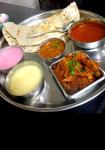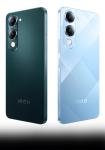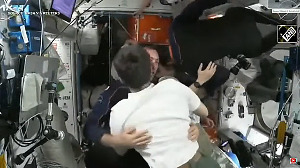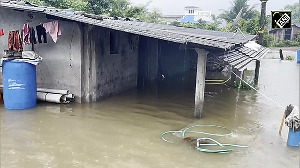With a strategy to broaden its beverages portfolio in place, PepsiCo India plans to bring down the share of Pepsi, its flagship brand, in its total sales to 40-45 per cent in the next five years.
"Five years back, we derived more than 75 per cent of our sales from brand Pepsi. Now, PepsiCo has a strategy to have four to five equally strong core brands," Rajeev Bakshi, chairman, PepsiCo India, told Business Standard, adding: "Over the next few years, our target is to have 40 per cent sales from brand Pepsi and 30 per cent each from other carbonated drinks like 7Up, Mountain Dew and Mirinda, and non-carbonated drinks like Tropicana and Slice," he added.
According to Bakshi, this will happen, as other brands in the company's portfolio will be pushed aggressively in the market. He said Pepsi's non-carbonated soft drinks brands such as Tropicana, Slice, Mangola and Aquafina would double their share in the company's sales from the "late-teens" now in the next few years.
The faster growth of "health and wellness" products such as juices and water is now recognised as a global phenomenon.
To expand its non-carbonated drinks portfolio, the company last year launched its sports-energy drink Gatorade, and in April it will introduce Lipton iced-tea in association with Hindustan Lever Ltd. The iced-tea will be available in returnable glass bottles, tetra packs and PET bottles.
PepsiCo's bullishness on non-carbonated drinks stems from the fact that its packaged water brand Aquafina and the fruit juices brand Tropicana registered a 50 per cent growth in 2004 as against the 17 per cent volume growth for its carbonated drinks.
Though Bakshi denied that the pesticide controversy had forced the company to reduce its dependence on cola, he admitted that the controversy had to an extent impacted the brand equity of the product.
According to Bakshi, the strategy to increase the share of non-carbonated drinks would greatly enhance the company's profitability.
"Right now, the carbonated softdrinks business in India has a unique business model. The reliance on glass bottles adds to the cost as there is a two-way freight expense. With categories like juices attaining critical mass, it would be a typical FMCG model," explained Bakshi.
PepsiCo multicategory strategy is a contrast to rival Coca-Cola's which derives a bulk of its sales from its strong portfolio of carbonated drinks brands like Coke, Thums Up, Limca and Sprite.
Juicing it up
- Firm aims at 40 per cent sales from Pepsi and 30 per cent each from other carbonated and non-carbonated drinks
- Tropicana, Slice, Mangola and Aquafina to double their share in sales
- To expand non-carbonated drinks portfolio; will introduce Lipton iced-tea in association with HLL






